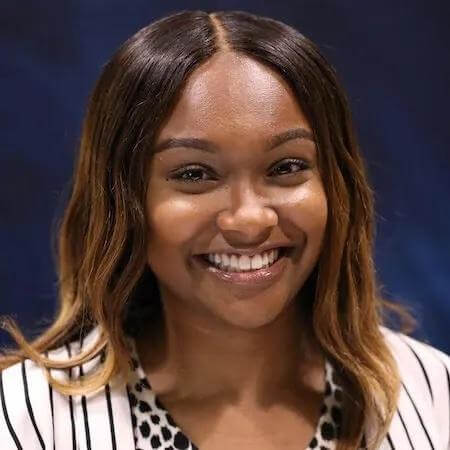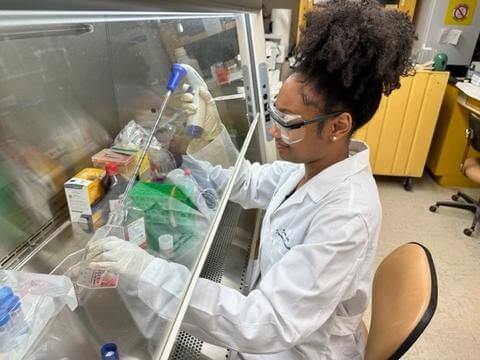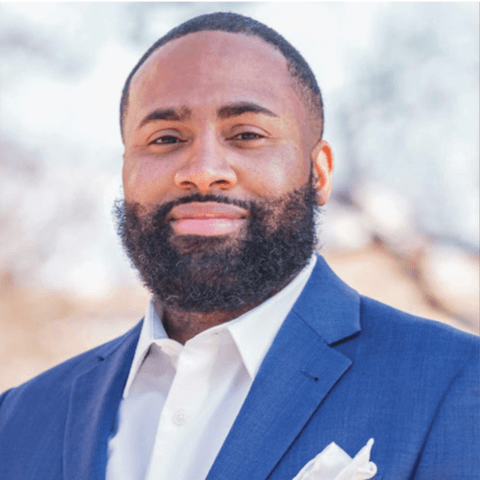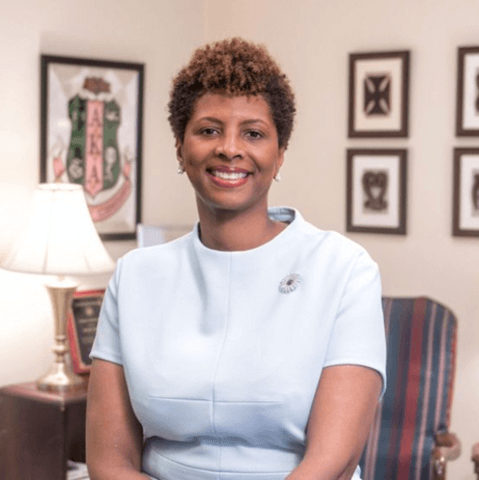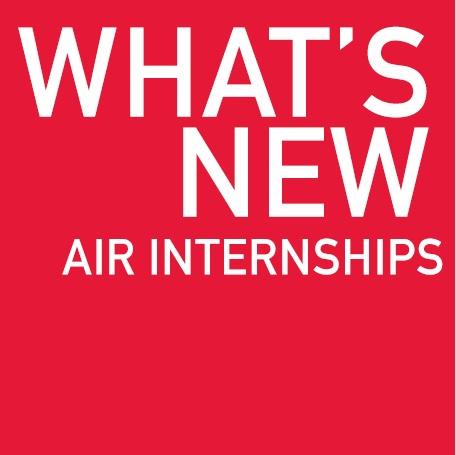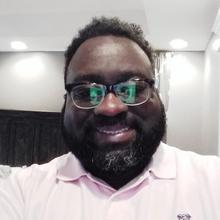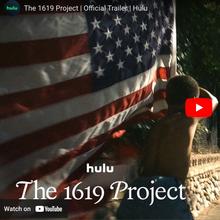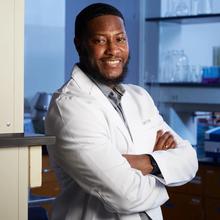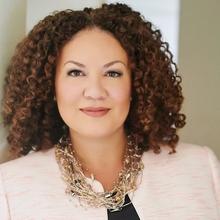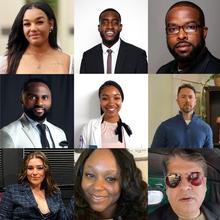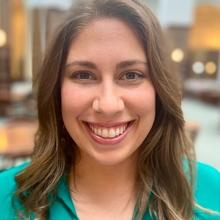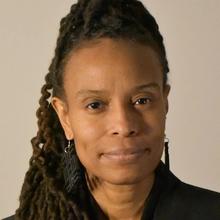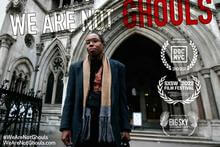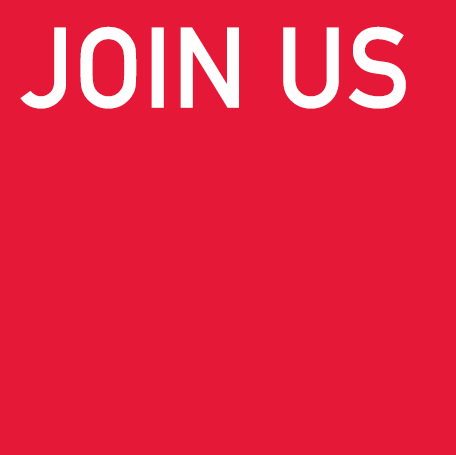The Sway: March 2023
Welcome
The Sway is Howard University Graduate School's news publication. It serves to celebrate and highlight graduate student, alumni, faculty and staff achievements and updates. It is published regularly during the academic year.
- To subscribe follow this link.
- To submit news/updates follow this link.
We also encourage all alumni to join one of our networks on LinkedIn. The Doctoral Alumni Network can be found here, and the Master's Network here. The Graduate School also regularly publishes updates on its social media channels: Instagram, Twitter and Facebook.
Bison Trailblazers
by Jasmine M. Ellis
For doctoral student Destiny Lawler being at Howard University answers a prayer. She is presently a fourth-year pharmacology Ph.D. student.
“Going to Howard University has always been a strong desire of mine,” says Lawler. “I am pleased with its history, which aligns with my morals and values. Once I graduated with my BS, I received a prophetic word that I would go to Howard. From there, I explored and researched the different available programs. I applied and got accepted with a full-ride scholarship.”
Originally from Montgomery, Alabama, Lawler studied Forensic Biology at Alabama State University. As an undergraduate, she was heavily involved in summer research. She spent a summer at the O'Neal Comprehensive Cancer Center at the University of Alabama Birmingham, another at the Homeland Security Careers, followed by a stint at the University of North Texas Health Science Center. Through these internships, she honed her laboratory and data skills, and received hands-on training on how to handle radioactive materials. Most importantly, she gained first-hand experience with breast cancer research.
Lawler talks to The Sway about her work, what inspired her to pursue a career in health science, and her passions outside of the lab. This article has been condensed and edited for clarity.
The Sway: What research are you doing as a doctoral student?
Destiny Lawler: I am currently doing breast cancer research in the Comprehensive Cancer Center along with my mentor Dr. Robert L. Copeland. I am specifically working on triple-negative breast cancer (TNBC). I am also involved in joint research with my mentor's collaborator at Georgetown University, College of Medicine, where we are involved in looking at “Novel strategies for treatment of ethnically diverse triple negative breast cancer."
TS: Why did you decide to pursue that particular research?
DL: African American women have a higher mortality rate of 42% compared to European American women. I decided to pursue this specific area of breast cancer research because TNBC is predominantly seen in young African American women. It is also the most aggressive subtype of breast cancer.
TS: Who or what inspired you to pursue a career in health science?
DL: I originally wanted to pursue forensic pathology because my grandfather owned a funeral home. New inspiration happened at Magic City Classic (MCC)- the biggest HBCU football game in the nation between Alabama A&M [University] and Alabama State University (ASU) in Birmingham, AL. I have been privileged to enjoy this event with premiere benefits by being an ambassador for ASU for three years. One rainy afternoon after the annual MCC parade, I noticed my fellow ambassador pulled out a clear bag full of medication. This was a clear indication to me that my fellow ambassador had health complications. That is when she told me about her complications with lupus, which is a chronic condition. This experience gripped my heart; I knew I wanted to make a difference for her and others.
TS: What is one internship experience you've had that's been valuable?
DL: A valuable internship experience I have had is my participation in nuclear forensics at the University of Utah in Salt Lake City, Utah. There I had the opportunity to learn the fundamentals of nuclear forensics, including radioactive decay kinetics, radiation interactions, and radiation detection. In addition, I received extensive hands-on experience handling radioactive materials and performed experiments on nuclear forensics. I also got the opportunity to interact with world-premiere scientists and engineers at Los Alamos, New Mexico, to tour the Los Alamos National Laboratory. This internship experience diversified my knowledge in STEM and exposed me to the plethora of opportunities that are available.
TS: What are your career goals?
DL: Upon completing my Ph.D., my career goals in science are to pursue research involving possible targets for novel drug therapy for common diseases and other comorbidities. I am excited about working on projects researching new drug development methods and the relevant pharmacokinetic and pharmacodynamic effects. I am also interested in the research of inflammatory diseases such as lupus, which I hold personally to my heart as it is an ailment of my grandmother and my former fellow ambassador. There is not a known cause for lupus, and I would like to research it further and enhance targeted drug delivery for this disease. Learning about the study of drugs and its effect on the human body is imperative for successful drug delivery.
TS: In terms of who you are, Do you define yourself solely as a scientist, or do you have other interests/passions that represent who you are?
DL: I do not define myself solely as a scientist at all. Outside of science, I am a singer/artist. I just released my first single, which is available on all platforms. My artist name is Des Nicola, and my song's title is "For Me." Des is short for Destiny, and Nicola is my middle name. Other interests/passions of mine include giving back to my community and arts/entertainment, which I will get more involved in soon. Above all, maintaining my relationship with Jesus Christ and ensuring He is glorified represents who I am.
TS: What advice can you share with students interested in pursuing a similar career path?
DL: Advice I would give them is to learn how to adjust but continue to stay true to the tactics and routines that have brought you this far. Stay true to your values, and do not limit yourself. The amount of opportunities available in STEM is endless, therefore, take full advantage as much as you can. Push the envelope and keep asking questions. Having confidence in yourself will take you farther than you think. I also encourage having a balance between studies/academics and enjoying life, if not, then this can hinder your performance as a student.
Word to the Wise: Dr. Joseph L. Wilkins
By Jasmine M. Ellis
For new faculty member Dr. Joseph L. Wilkins being at Howard means another opportunity to increase BIPOC participation in atmospheric science. “I decided to teach at Howard because of its rich history and current scholarship,” says Wilkins. “I have always wanted to be a professor, and to do it at the #1 HBCU is a great honor.”
Originally from Louisville, Kentucky, Wilkins is assistant professor in Atmospheric Sciences with expertise in wildland fire research, remote sensing tools, and air quality model development. After finishing his doctorate at Saint Louis University, he was a scientist at the Environmental Protection Agency. From there, he went on to do research at the University of Washington, Seattle.
In his first interview for The Sway, Wilkins talks about what inspired him to become a scientist and his current research interests and shares advice for those interested in a similar career path with the Howard community. This article has been condensed and edited for clarity.
The Sway: What inspired you to become a scientist and pursue your research interests?
Joseph L. Wilkins: Many reasons, but the primary reasons are, I have always loved the Earth, so Nature and learning how the world works have been my thing since the beginning. The biggest driver was growing up with asthma in Louisville, Kentucky (one of the higher polluted cities in the U.S.). I could barely breathe growing up, which limited the amount of days I could go outside and enjoy nature or play with my friends. As a child, I figured if I convinced the rich folk that we poor folks breathed the same air, they would help out. I am still championing this mission as a scientist with my air quality and environmental justice work.
TS: Why is it important for Black people to be involved in research on air quality?
JW: Air quality research is important for all races; however, for us (the ~13%), it's more critical as we are the main group impacted by its negative impacts even though we are not the main ones creating the pollution. We tend to all have family and friends living In disadvantaged areas, causing most of us to have health impacts (i.e., asthma, cancer, heart disease) that we often think are hereditary but are more due to living conditions. Even more so, our lifetimes are being cut short by nearly a decade on average depending on the water resources, food deserts, soil quality, and outdoor and indoor pollution, all air quality related.
TS: What advice can you share with students interested in pursuing a similar career path?
JW: The best piece of advice I can give is to study all things Math, computer (programming), and communication (written and oral), and build your network. I tell all my mentees and students that your network extends from friends, family, classmates ,professors, mentors, and folks you cross paths with along the way. Your network will soon become your net worth.
TS: It's time for a fun fact! What is the best non-academic book you've read lately?
JW: Dean Koontz, Intensity.
TS: Is there anything I have yet to ask you that you would like to share?
JW: A few things I love to share with anyone willing to listen are, i., perception is reality, protect your image (digital or non) at all cost, you only get one first impression (20 seconds is all it takes typically), ii. Fail with grace, in life, nothing is perfect, and oftentimes none of us end up where we envisioned we would, try everything, have fun, fail miserably, intern everywhere possible, get creative, and that’s how you’ll identify your purpose in life and find your home. Always reach out to those you want to be, and study those you think you do not wish to be, as you can learn a lot from both in how they got there. iii, invest invest invest, none of us can work forever, and life happens, always put away some money for a rainy day, not in a bank but brokerage account and investment retirement accounts (IRA, ETFs, Stocks, Mutual funds). The sooner, the better (you’ll thank yourself later).
Dean's Corner
Welcome to March and Women's History Month! Women do amazing things all day, all week, all month, all year. Still, pausing in the month of March to celebrate women and our accomplishments and to reflect on how we might enact gender equity in the world seems appropriate to me.
As the first permanent woman dean of the Graduate School at Howard, I don't take calls for gender equity lightly. I'm not sold on the idea that women and men lead differently. I may be wrong, but it seems to me that leadership is as much a function of style, learning, exposure, and personality as it is of gender. But representation matters. So, seeing women in leadership is a necessary thing, if for no other reason than people model what they can see.
At Howard, we are training the next generation of scholars and leaders, many of whom identify as female. They will make the world better through their contributions. And a big part of that will be because they understand the role women have played historically and contemporarily in servant leadership in our communities, from Howard's first woman dean Lucy Diggs Slowe to the Graduate School's first interim woman dean Esther Ottley to Jessica Whitaker, the current Graduate Student Council president. For each of these women, there is no us against them dynamic; there's only an us; and us includes all people.
As we commemorate Women's History Month this year, we keep at the fore of our minds, too, the people who inspire us, the people we love, and the people we are called to serve alongside. That's a cause worth celebrating all year long.
Dana A. Williams, Ph.D., Graduate Dean
What's New: AIR Internships
The American Institutes for Research Pipeline Partnership Program (P3) summer internships are an amazing opportunity for Howard graduate students, especially in education, economics, psychology, sociology, statistics, computer science, public policy, public health or other social science related fields.
P3 seeks to address a persistent lack of racial and ethnic diversity in the behavioral and social science research fields across the U.S. and globally. Since 2019, AIR P3-US has collaborated with Howard University and other university partners to increase awareness of and access to research and technical assistance career opportunities outside of academia for graduate level scholars.
The AIR P3 offers (1) virtual and on-campus learning opportunities on a range of topics that reinforce and extend skills relevant for research and technical assistance careers at AIR; (2) opportunities for students to participate in mentorships and internships with leaders who conduct research, evaluation, and technical assistance projects; and (3) channels for students, faculty, and AIR staff to diversity their professional networks.
“My experience in the AIR P3 workshop was a great one. I got a clearer insight into how to better frame my research questions through the lens of cultural and linguistic competency.
As an economist, this is particularly necessary for me as I always want to consider the relevant experiences of others—in addition to my own—in my motivations and assumptions. The survey methodology aspect of the workshop was also important as well. While I am not currently developing my own surveys, much of the data I use for my research is survey-based. Thus, the workshop reinforced my knowledge of survey weighting, while also providing me with the tools to develop and administer robust surveys,” says Eddie Gray, Economics PhD student at Howard who participated in AIR’s Cultural and Linguistic Survey Methods Workshop.
In addition to its partnership with Howard University, the P3 collaborates with Georgia State University, The University of Texas at San Antonio – and recently added two new partners in Africa – University of Nairobi and University of Dar es Salaam. Learn more about the program here.
Deadline: March 24, 2023
Yes!
The highly anticipated 1619 Docuseries is now available on Hulu starring Nikole Hannah-Jones, the Knight Chair in Race and Journalism and founder of the Center for Journalism & Democracy at Howard University.
Dr. Carter Clinton ('21 PhD, Genetic Anthropology) recently participated in a panel on "The Next Generation of Black Leaders in Genetics" at the National Museum of African American History and Culture.
Dr. Michelle Hawkins ('07 PhD, Atmospheric Sciences) was just appointed Senior Advisor in the Office of the Assistant Secretary for Administration at The United States Department of Housing and Urban Development. This follows her work on sustainability at the White House.
Graduate Students
Congrats to Graduate Certificate Program in International Studies grad students for successfully debating their Draft Resolutions at this month's Washington Model Organization American States (W-MOAS): Kyra Cox, Joseph K Williams, Darnell Davis, Kelvin Mbi, Brea Brown, Tyler Holt, Madison Oberg, Krystal Patrick, Maneesh Pandeya, and Esther Eugene (not pictured).
As a result of the support provided by the Just-Julian Fellowship, Christine Kindler (doctoral student in Clinical Psychology) received extramural funding for her dissertation project, "Peace Conversation Circles: Promoting Agonistic Historical Dialogue in Post-Genocide Rwanda," through the Peace Scholar Fellowship from the U.S. Institute of Peace (USIP), and a Small Grants Award from the Society for the Study of Peace, Conflict and Violence (APA Division 48).
Black History Month
During Black History Month, graduate students at Howard University and the University of Ghana presented their research at the virtual symposium, “A Return to African and Diaspora Dialogues.” Jessica Whitaker, a third year Ph.D. student and member of the Graduate Student Council, presented research that focused on determining the impact of targeted electricity grid cyber attacks on energy poverty and insecurity in Africa and the U.S.
“The Graduate Student Symposium provided an excellent opportunity to strengthen the partnership between the Howard University Department of African Studies and the University of Ghana Institute of African Studies. I engaged with Howard graduates working as faculty at the University of Ghana to discuss the possibility of academic opportunities in Ghana and other African countries,” says Whitaker.
The Symposium highlighted the importance of understanding the similarities between issues that Black people face globally and facilitating joint research resulting in global solutions. Interacting with Ghanaian scholars for feedback enhanced Whitaker’s global research perspective and increased collaboration opportunities across the African Diaspora.
WE ARE NOT GHOULS: PREMIER AT HOWARD
A DOCUMENTARY WITH FORMER JAG AND HOWARD DOCTORAL STUDENT YVONNE BRADLEY
March 23, 2023
12:00 - 2:00 PM (lunch provided)
Blackburn Reading Lounge, Howard University
“A striking portrait of American history, but more significantly, a mirror to current global cruelties … An incisive look at what it means to work within a system that’s fundamentally broken.”
― Gayle Sequeira, Film Companion
Winner of the SXSW 2022 Documentary Spotlight Audience Award.
Premiered at SXSW in the historic Alamo Drafthouse Cinema.
Sold-out screenings with standing ovations
9.6 out of 10 rating on IMDb
"The film We Are Not Ghouls is an important documentary because it allowed me to inform the American public about what was truly happening during the Afghan War and the War on Terror. The documentary explains the U.S. government's involvement in capturing and imprisoning innocent individuals at Guantanamo Bay and other black sites.
Many Americans likely believed (as I did at the time) that the U.S. military was capturing and imprisoning individuals who were actually involved in the 9/11 attack and other terrorist plots, " says Yvonne Bradley, a doctoral student in History, and subject of the documentary.
"Unfortunately, nothing could have been further from the truth as I soon discovered that not only was the U.S. government imprisoning innocent people at Guantanamo but that the U.S. was also involved in an active torture program either directly or by proxy. Much of the torture and
treatment were horrifying and barbaric. This documentary is important to the public because it enlightens and informs them about the truth and the broader picture of Guantanamo Bay and the War on Terror. The documentary should help people understand and recognize their capability
and responsibility to stand up and advocate against wrongs and injustice," she adds.
Doctoral Career Pathways Conference 2023
March 27 - 31, 2023
With 70+ expert panelists, this week-long virtual conference for alumni and graduate students focuses on diverse career pathways.
Send us your news/updates
Faculty/Graduate Student/Staff form

